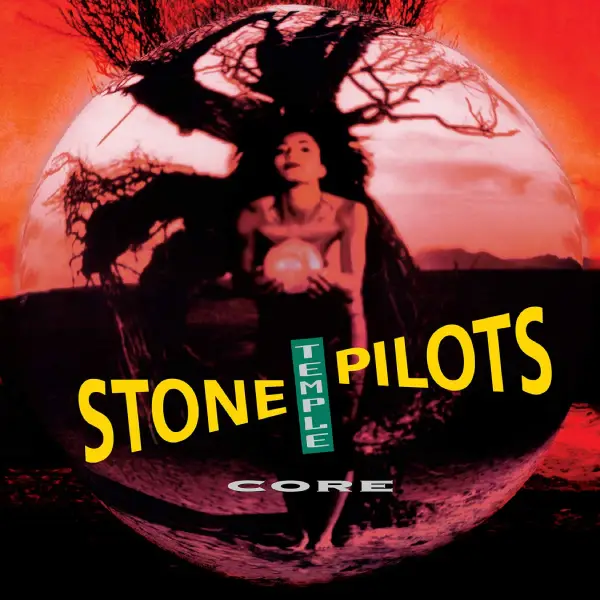Stone Temple Pilots
– Core
Stone Temple Pilots’ Core is a product of grunge at its most deliciously turbulent. Released at the peak of the early ‘90s alternative boom, the album doesn’t try to outdo its peers—rather, it stakes its claim through sheer grit and catchy hooks. There’s a sense of urgency here, like a band figuring it all out while the world watches. It’s loose without feeling unhinged, raw but not necessarily reckless. This is a record that knows it’s walking a tightrope, balancing between the weight of the genre’s angst and a pop sensibility that refuses to let go of its hooks. It’s grunge with a knowing smirk, not a sneer.

The guitars chug and cut through the mix like a constant reminder that this is a band pushing against their own boundaries. But unlike some of the angst-ridden acts of the time, this isn’t just about thrashing and screaming. The music has structure—it grooves, it sways, and it knows when to pull back. There’s an undercurrent of melody that sneaks through even when the distortion is cranked up to eleven. The record also thrives on its ability to shift from brooding to explosive without losing its sense of direction. The shifts are jarring, but in a way that feels like a shock to the system, an invitation to follow where they’re headed, no questions asked.
As the album spins, Core becomes something more than its grunge roots. It is less about adhering to a specific sound and more about capturing the vibe of a generation still in flux. The band never lets the genre fully box them in, letting moments of melody shine through like flashes of clarity in a storm. It’s messy but purposeful—chaotic yet controlled. Core is the kind of album that feels less like a statement and more like a glimpse into the band’s early creative potential, an open door to what could have been.
Choice Tracks
Plush
A drifting, almost hypnotic groove, wrapped in Weiland’s bittersweet delivery. The melody feels like it’s been around forever, carried by the kind of guitar tone that stains the memory.
Sex Type Thing
Menacing and relentless, it stomps forward on a jagged riff and a vocal performance that cuts like wire. There’s no safe distance from it—it demands full attention.
Wicked Garden
Thick, humid guitar lines coil around Weiland’s voice, building a sense of decay and bloom all at once. It’s a song that lingers in the body long after it ends.
Core is heavy yet strangely inviting, its riffs towering while its melodies seep deep into the skin. STP’s debut carves out a space where weight and atmosphere fuse, creating a record meant to be felt as much as heard.
Core lands with the density of a wrecking ball wrapped in velvet. Every riff feels hewn from granite, yet there’s a strange sensuality under the surface. Dean DeLeo’s guitar work doesn’t just hit—it curls, stretches, and bends into shapes that feel sculpted from raw impulse. Robert DeLeo’s bass fills the air between the cracks, giving the songs a pulse that’s both heavy and strangely elastic. Eric Kretz’s drumming is solid without being static, every strike purposeful, every crash an exclamation point.
Scott Weiland commands the mic like someone caught between confession and incantation. His voice is capable of a growl that feels subterranean, but he can also glide into melodic phrases that hang in the air like cigarette smoke. The lyrics are abstract enough to invite projection, yet they carry an urgency that feels unmistakably personal. He doesn’t just sing—he drags the listener into his headspace and leaves them to wander.
The album’s pacing is a slow burn—songs breathe, brood, and then erupt. The band isn’t afraid of space, and when they choose to fill it, the sound comes down like a landslide. Core thrives on that tension, capturing a band willing to live inside the weight of their own sound, letting it sprawl without losing direction. It’s music that doesn’t just want to be heard—it wants to be inhabited.

